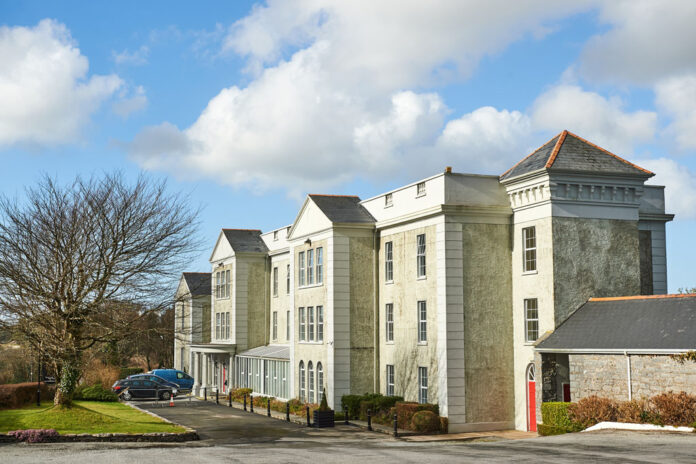ON a misty Friday morning, the lobby of the King Thomond Hotel is thronged with people from different countries, snippets of various languages filling the air.
All of the residents are getting used to the changeable weather of North Clare, while many are learning a new language.
A reality of working in local papers is that you frequently meet people who are happy to tell you what they think, but not to be quoted or have their names used. While generally this is because of a type of shyness, when it comes to the asylum-seekers in Lisdoonvarna – who know very few Clare Champion readers – it is in some cases rooted in a genuine fear of reprisal from those who opposed them on another continent.
One Kuwaiti woman said she didn’t want to reveal her identity, and had left her home country, because her husband, who is from Bahrain, could be at risk there. “I just want to be safe with my family. If we went back to Kuwait, maybe they would kill him, that’s why we are here.”
Despite having come from the Middle East, she was very comfortable with Irish weather. “I love the place, it’s a very nice place. I like the weather! I love the rain, love the weather here. Also the people here, I love them. They are so friendly.”
Thirty-one-year-old Evarist Mbambu never thought he would move to Lisdoonvarna when he was working as a chef in Kinshasa, the sprawling capital of the Democratic Republic of the Congo.
While many in Ireland are oblivious to it, conflict in his home country has seen millions die since the 1990s.
When he was approached by state representatives and told to put things in the food of their opponents at a meeting, he knew it was time to leave. “I couldn’t stay there, they would kill me, because I didn’t do it. That’s why I decided to leave.”
He crossed the border to Zambia, where a priest he met helped him get to Europe.
Evarist is in Clare with his wife and 15-month-old son, but is still concerned about his relatives who are left behind. “Watching the news, you can see what’s happening, especially in the east of the country, people are dying.”
At the moment, he says there is no way he can return, with the same authorities in place, and the man who tried to get him to engage in poisoning still in his job.
He feels his family are doing quite well in Clare. “It’s quiet, it’s good for family. It’s good. Just the weather is changing, cold, sometimes sunny, but it’s a good place to rest and think about the future.”
One of the Nigerian women living there hasn’t taken to Lisdoonvarna as readily. “It’s a very quiet village, there are really no amenities, only about three shops altogether. It’s more of a dead end really, that’s how I see it. Hopefully they will take us out of here as soon as possible.”
She says she left Nigeria due to a threat of domestic violence. While she went to the UK then, she still was not safe. “I came in through the UK, but a lot of my husband’s family are there, so I didn’t really feel safe there. I was so happy to come [to Ireland], I’ve been really safe since I got here.”
She says her children are very happy in school and they enjoyed the novelty when the Beast from the East arrived, exposing them to snow for the first time in their lives. “It was fun, but extremely cold!”
Sihre Mkandla (43), from Zimbabwe, has been in Lisdoonvarna for two months, having been in Dublin for four months. A lack of tolerance for gay people in her home country has turned her life upside down, even though she herself is not gay. “My government doesn’t promote the LGBTQ kind of thing. I’m not LGBTQ but my work led me to be associated with that and being in support of the LGBTQ society, and it is taboo. They are considered as animals, and if you are in the same circle as dealing with them, you are considered to be the same as well. I found myself in that situation. It comes to where your life is not safe and I had to leave.”
Her departure was abrupt, she could not say goodbye to some of her loved ones, and her son and daughter, aged 14 and 8 respectively, are still there. “I left my kids at home, which is one mistake that I regret every day. I pray to God that if things go well I can bring them. Being without them is just like… I’m here but my heart is not here.”
While missing her family is obviously a huge ordeal, she knows she is safe in Ireland. “I didn’t know where I was going to but I came to Dublin. I’m not sorry I am here because I needed a country where I can be protected, a country that speaks English, where if I say something I will be understood. Here I am okay.”
Tanvir Ahmed was involved in social and political activism in his native Bangladesh, and says societal attitudes there were unacceptable to him. “It’s a very Muslim-based country, there is a Muslim foundation to the country and they don’t tolerate many things that should be tolerated by now, we’re living in 2018.
“They’re not treating people properly, LGBT people aren’t being treated properly. Women and kids face so much discrimination, all sorts of places, I think that should be treated differently. Obviously they don’t accept different political opinions.”
He says that if he were to return there he could end up in prison, or even be killed, with the truth covered up. “Honestly, I could face – I don’t know how to say it nicely – death. I could be killed by anonymous people and it would never be solved.”
Tanvir hopes to play soccer for a local team next season and he likes Lisdoonvarna. “It’s a lovely place, it’s a great place to be, near the ocean and the fresh air.”
A generation ago, Ireland was looked on as a very conservative society by European standards but that has changed dramatically. “One of the main reasons I picked Ireland was because I believe it’s a place that treats everyone equally, no matter where you came from, whatever your background is or your profile is. This is what I believe and what I have seen since I came to Ireland.”
Owen Ryan
Owen Ryan has been a journalist with the Clare Champion since 2007, having previously worked with a number of other publications in Limerick, Cork and Galway. His first book will be published in December 2024.


